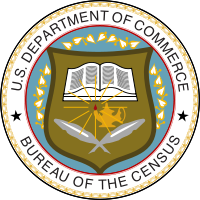 Access to information is extremely important in today’s society. Those that have it are better able to compete in the job market or in gaining access to higher education. But new data from the U.S. Census Bureau shows that there is a persistent racial digital divide.
Access to information is extremely important in today’s society. Those that have it are better able to compete in the job market or in gaining access to higher education. But new data from the U.S. Census Bureau shows that there is a persistent racial digital divide.
In 2011, 56.9 percent of all African American households had Internet access. But for Whites, 76.2 percent of all households had Internet access. This is a huge racial gap of nearly 20 percentage points.
The data shows that 68.3 percent of African Americans lived in a household that had at least one computer. But 84.8 percent of non-Hispanic Whites lived in a household with one computer. Just over 60 percent of African Americans over the age of 3 had Internet access from some location, home, work, or smartphone. For non-Hispanic Whites the figure was 75 percent.
The survey found that just under half of both Black and Whites over the age of 15 used smartphones.













The “digital divide” is the least of our worries. Assuming, 100% of Black people had internet access, the most relevant question becomes what will they see, learn or discover once they are online? Has anyone noticed the reduction of Black owned platforms on the internet?
Indeed Troy. The so-called “digital divide” is a trivial problem compared to the massive deficits in the classroom. How exactly for example is more online “access” going to help so many black kids who can’t even meet basic math standards in class?
The “Digital Divide” should be one of our major concerns. Access to technologies is essential for our youth to gain access to a higher education. In addition, consistent access to technology is significant in regards to increasing our employment rate, etc. I’ve worked in a position where I’ve noticed that a lot of Blacks did not have access to a computer. Without access to a computer you cannot even apply for a job. If Blacks cannot even apply for a job the Nihilism in Black America just perpetuates.
Redux- The advent of cheap smart phones with Internet capability makes the whole “access” argument increasingly irrelevant. Neither desktops or laptops are needed anymore and these phone devices can print hard copy via free apps that allow just that. There already is plenty of “access” to technology. Ghetto kids are toting iPhones these days or cheaper Asian made knockoffs and are getting decent service using pay as you go plans or monthly contracts. As for job applications this is small beer indeed- major stores like Walmart, target and others have kiosk screens that allow walk-ins to fill out applications right there at the store. What? Black folks don’t have “access” to Walmart?
And almost all libraries these days also have free computer use. Again, where is this dire lack of access we keep hearing about?
The problem is not “access.” The problem is lack of discipline and hard work needed to master subjects at hand. This is the central failure not “access” to technology. Blacks like hard-nosed Caribbean people, African immigrants, old school blacks, and many serious black women have shown what needs to be done. That is the central effort that needs to be expanded multiple times rather than wasting time on other matters (including time wasting on smart phones).